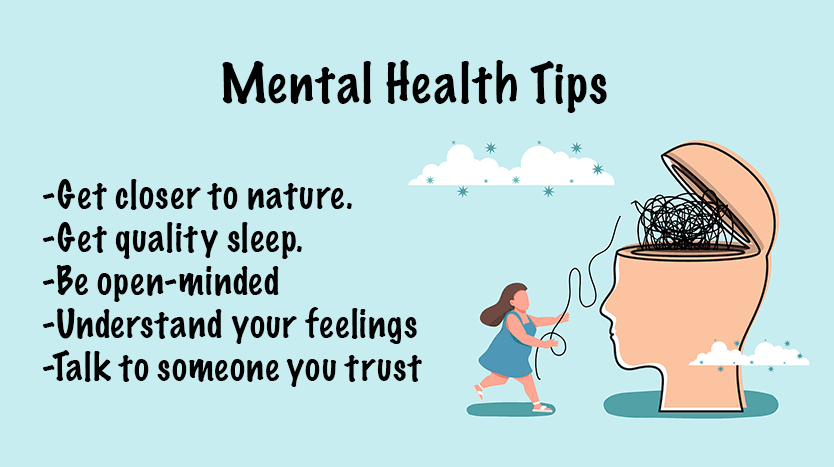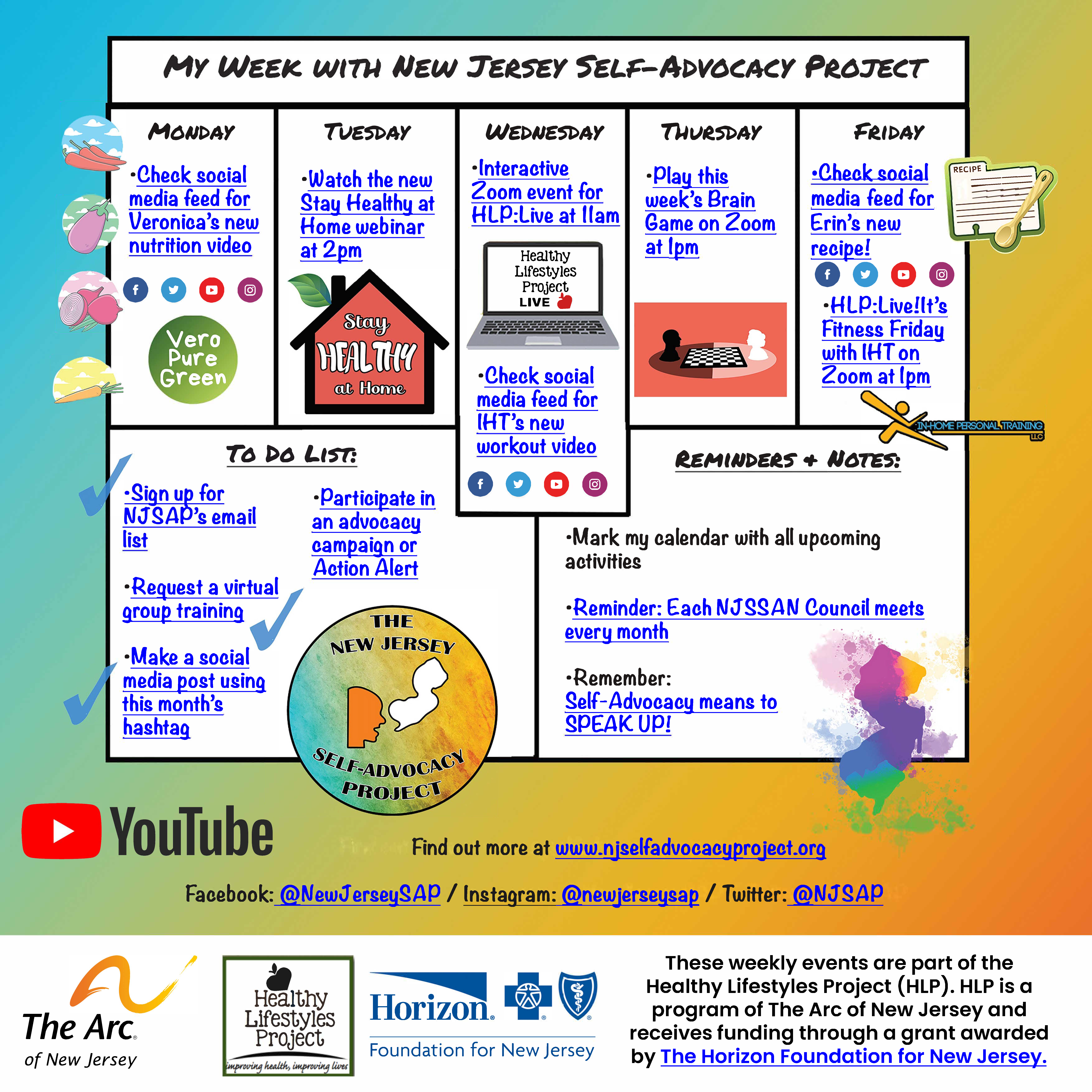
Welcome to the Positive Pulse blog! Check in with us each month for tips on healthy living, right on our website. A short snippet will be featured in the NJSAP monthly newsletter as well, which you can sign up for here.
This month’s topic is mental health. Learn why spreading awareness is important, some quick tips for improving your general mental health, and some helpful hotlines.
Did you know that nearly one in five adults in the US has a mental health condition?
- 48 million have an anxiety disorder
- 21 million have major depression
- 9 million have post-traumatic stress disorder
- 7 million have bipolar disorder
- 3.5 million have borderline personality disorder
- 3 million have obsessive compulsive disorder
- 1.5 million have schizophrenia
And In 2018, an estimated 17.4 million adults with disabilities experienced frequent mental distress.
Mental Health awareness can help those with a condition overcome the stigma and get access to treatment and helps their loved ones educate themselves about these conditions and connect with support networks. It helps the providers who treat those with a condition receive funding for their research and treatment so they can better care for all our mental health.
Those with or without any these conditions still need to care for their mental well-being. It should be part of your daily routine and overall health goals. Try to find what is helpful for you, using the following tips:
- Get closer to nature. The great outdoors can help you feel calmer, more hopeful and less alone. Try simple walk or “forest bathing” where you experience the different smells, sounds and textures of the woods.
- Get quality sleep. Develop a relaxing bedtime routine and try to get 7-9 hours of good sleep each night.
- Be open-minded. We can all get stuck in familiar ways and our expectations can influence experiences and amplify negative thoughts. Notice these negative thoughts and exchange them for positive ones like “there is so much I can do” while trying out a new hobby, adventure, or talent.
- Learn to understand and manage your feelings. Many of us will know when we’re upset but not be sure what we’re feeling. Try to recognize and name your feelings without judgement.
- Talk to someone you trust for support. Be courageous and talk about your feelings instead of bottling them up inside. You’ll feel safer and less alone with a trusted friend or family member and it ca strengthen your relationship.
Too many people experience suicidal crisis or mental health-related distress without the support and care they need. The 988 Suicide and Crisis Lifeline – previously known as the National Suicide Prevention Lifeline – is a national network of more than 200 crisis centers that helps thousands of people overcome crisis situations every day. It’s a direct connection to compassionate, accessible care and support for anyone experiencing mental health-related distress – whether thoughts of suicide, mental health, substance use crisis, or any other kind of emotional distress. You can find a list of other helpful hotlines here: https://www.helpguide.org/find-help.htm.
Resources:
https://www.cdc.gov/ncbddd/disabilityandhealth/features/mental-health-for-all.html
https://www.lifespan.org/lifespan-living/importance-mental-health-awareness-month
https://www.mentalhealth.org.uk/explore-mental-health/publications/our-best-mental-health-tips

